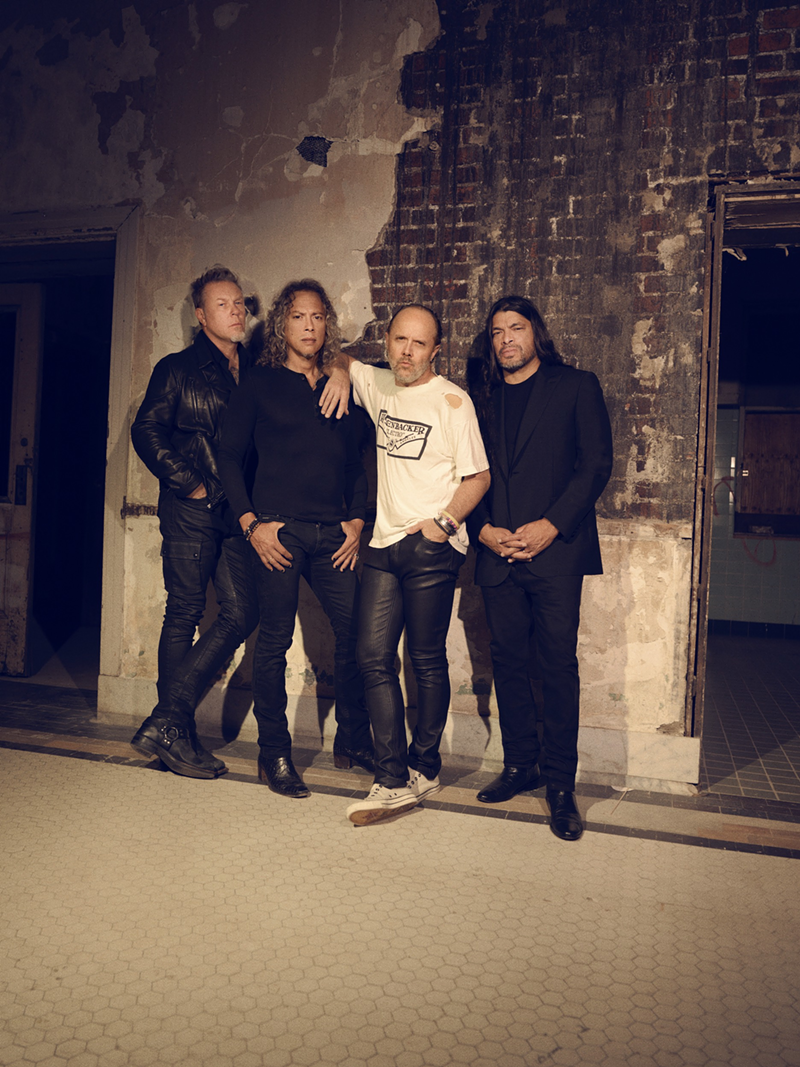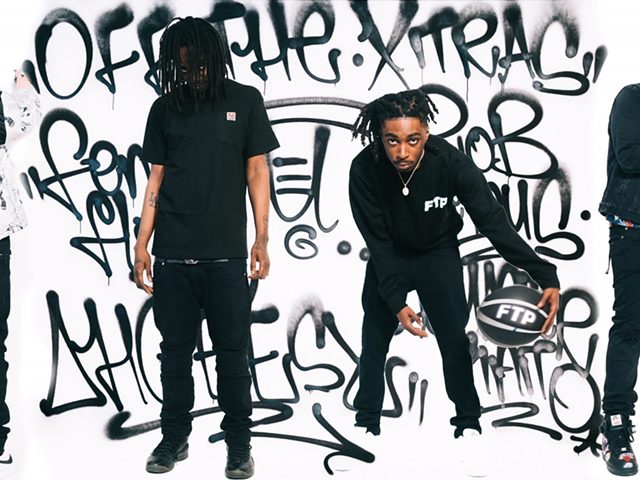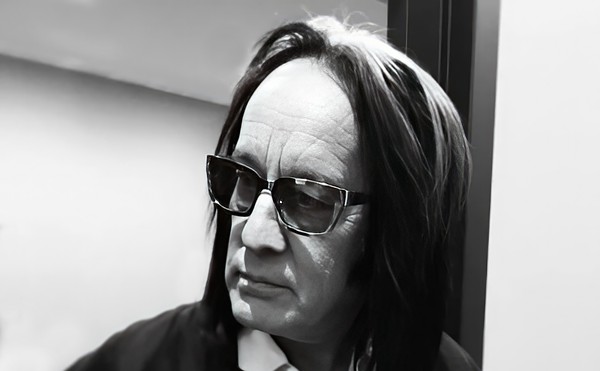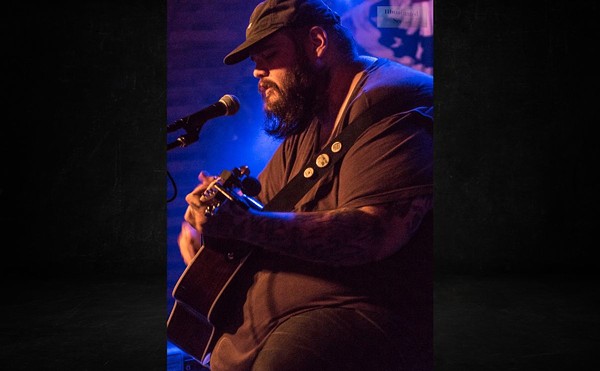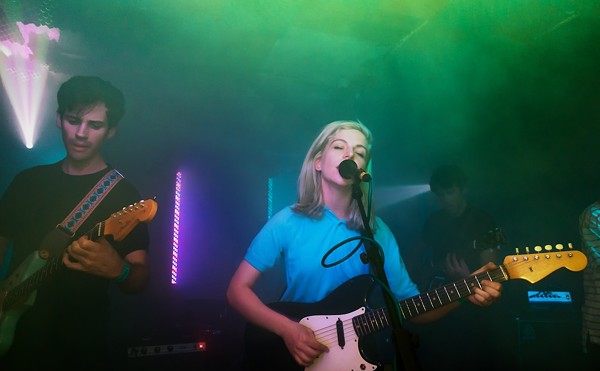It’s been said that absence makes the heart grow fonder. That seems to have been the case for Metallica.
Despite going eight years between studio albums and not doing a full-fledged tour in more than six years, Metallica’s major return in 2016 with Hardwired… to Self Destruct and its extensive WorldWired Tour found the music legends perhaps more popular than at any time in the past two and a half decades.
Released in late 2016, Hardwired debuted at No. 1 on Billboard’s Top 200 chart, while also topping album charts in more than two dozen other countries around the world. It was a fairly astonishing showing at a time when Rock artists struggle to sell albums. Hardwired was 2017’s biggest-selling album by any Rock band, and the WorldWired Tour landed in the Top 5 highest-grossing concert tours that year as well.
Not that Metallica totally dropped out of sight during the half dozen years between the end of its tour supporting 2008’s Death Magnetic and the release of Hardwired. There was a 2011 collaborative album with the late Lou Reed (Lulu) and an innovative 2013 concert film-meets-dramatic movie (Metallica: Through The Never), plus one-off dates, appearances and mini-tours in 2014 and 2015.
Most acts would have lost some momentum by staying off the music world grid to that extent for the better part of six years. Metallica guitarist Kirk Hammett thinks the band’s emphatic return was greeted so enthusiastically because it quenched a particular thirst for music fans.
“I think for right now, there’s a little bit of a vacuum (for) us and bands that sound like us,” Hammett says. “There are a lot of great new bands out there, but I think people yearn for something that they know is made in a real sense. I think there’s a bit of authenticity that comes with us that might not be attached to some of the more contemporary bands. We can be counted on to deliver in some form or another something that’s real and authentic and something that has integrity.
“I think that really means a lot to some people these days, when a lot of music is just kind of like made by pressing a button… People can count on us showing up with our instruments and actually making music right there in the moment. And we deliver. Whatever you hear on our album, we can play live. I will not even try to count how many bands are incapable of that. I think that’s part of it.”
The idea that Metallica stands apart on the music scene is echoed throughout our conversation. And it’s a theme of Metallica’s entire career. Hammett notes that from the moment in 1983 when he joined guitarist/singer James Hetfield, drummer Lars Ulrich and late bassist Cliff Burton (who died in a 1986 bus accident while on tour) in the group, there has always been an outsider mentality to Metallica.
“I think, at the beginning, it was an attractive thing for the three of us, and for Cliff, too,” Hammett says. “That’s something we saw in each other, and when we made music, we always kind of saw ourselves as a band that was on the outside looking in at all the other bands.”
Despite the group’s mammoth commercial success and enshrinement in the Rock and Roll Hall of Fame, Hammett says the musicians still feel that way.
“I don’t think that’s ever going to go away, even though we’re probably one of the most successful bands in the world — definitely one of the most successful Heavy Metal bands,” he says. “Maybe that’s part of what drives us. That outsiderness shapes our musical thinking. I think it plays a big part in our overall attitudes and perspective.”
Certainly Metallica had legitimate reason to feel untethered to any scene or genre when the group emerged with their 1983 debut album Kill ’Em All. The band’s thrashy, fast-paced sound was unlike anything in Heavy Metal.
After releasing two more all-time definitive Thrash Metal albums (1986’s Master of Puppets and 1988’s …And Justice for All), Metallica’s 1991 self-titled full-length (commonly known as “The Black Album”) turned the musicians into superstars. Led by the blockbuster single “Enter Sandman,” the album found Metallica tightening up its lengthy song arrangements and bringing in a bigger dose of melody without softening its sound. Widely acclaimed as one of Metal’s greatest albums, it has sold more than 16 million copies in the United States alone.
Hardwired… to Self Destruct was hailed by many as Metallica’s best work since “The Black Album.” Stylistically, some see the hard-hitting double album as a callback to the band’s …And Justice For All period, as songs like “Hardwired,” “Spit Out the Bone” and “Confusion” blast away behind jackhammer beats and rapid-fire riffing. Even songs that slightly downshift the tempo (“Now That We’re Dead,” “Dream No More” and “Atlas, Rise!”) are plenty hard and heavy.
Hammett says the band naturally gravitated to a “return-to-roots” place on Hardwired.
“Certainly, with Death Magnetic we learned that it was OK to embrace our past with sort of a revisionist approach,” he says. “That’s what Death Magnetic kind of started (as). To an extent, it’s continued with (Hardwired), too. We like to play music from all of the different eras, and at this particular point in our lives, playing the heavier stuff just is appealing to us. It feels right to me and it feels right to the other guys in the band.”
The group’s ongoing tour since Hardwired’s release has featured many of the newer songs from the album. Metallica’s 2017 North American dates found the band primarily performing in stadiums, but the current leg of the tour is winding mostly through indoor arenas in the U.S.
“It’s a lot different indoors,” Hammett says. “It’s more intimate. You have your closed-off sort of atmosphere. The sound is better. You can see everyone a lot better. You can see people up in the stands. The reactions are a lot quicker.
“It’s a different animal, but we enjoy — and I stress this — we enjoy playing in stadiums, we enjoy playing indoors. We enjoy playing small clubs. We enjoy it all, because for us it’s all about going out there and playing the songs the best we possibly can.”
Metallica plays Wednesday, Jan. 30 at U.S. Bank Arena Tickets/more show info: usbankarena.com.

